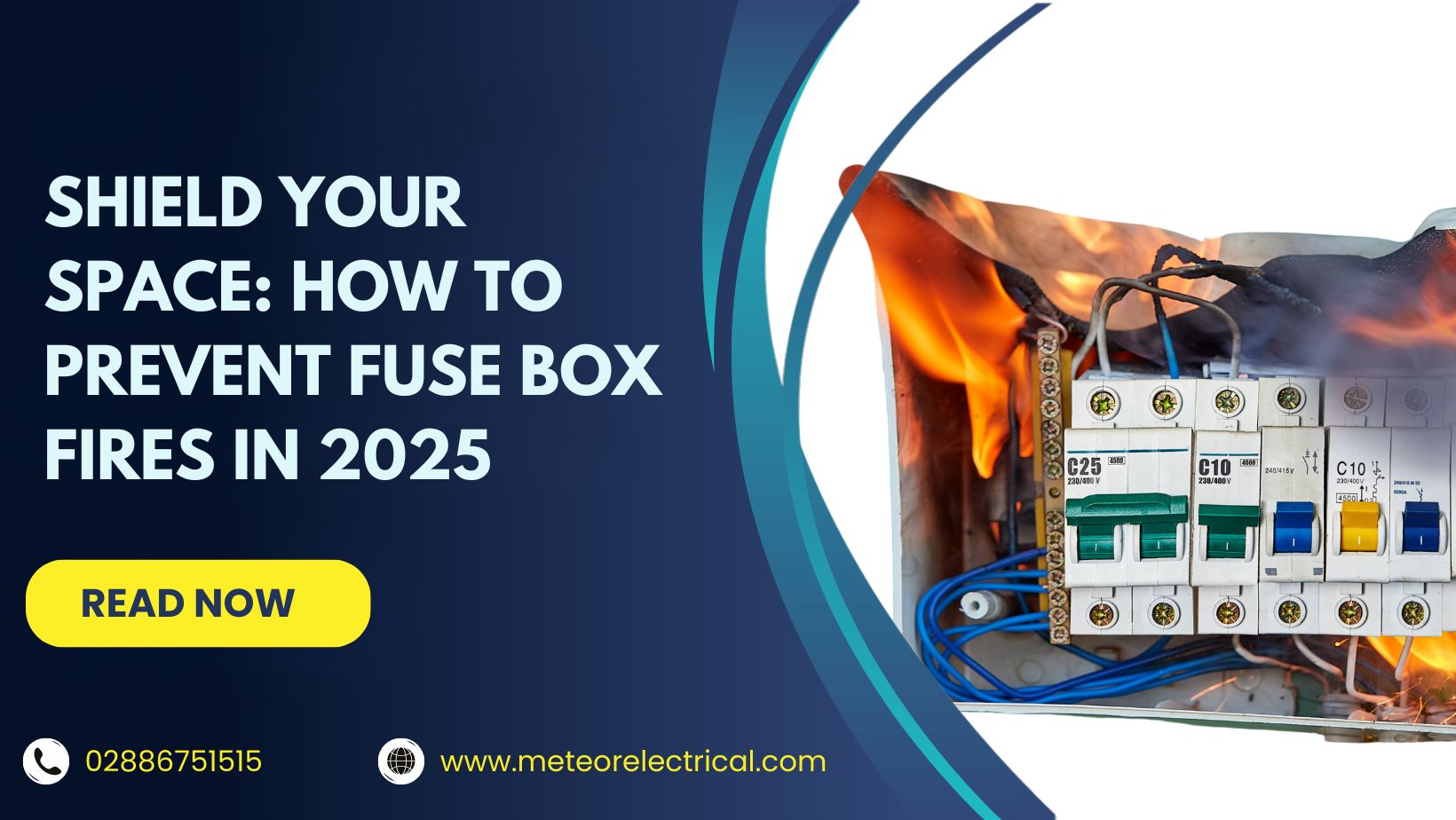Preventing Disaster: How to Protect Your Home from Fuse Box Fires
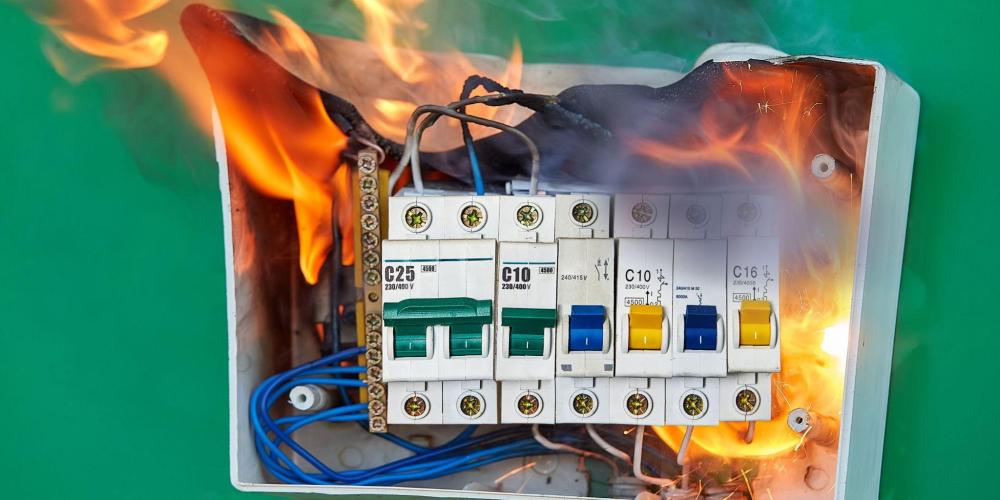
Imagine kicking back with a warm cuppa on a chilly evening when a burning smell creeps in. You look around—nothing obvious—until you spot smoke curling from your fuse box. A scenario like this is more common than you might think.
In 2025, the National Fire Protection Association (NFPA) reports that electrical distribution systems are still a leading cause of residential fires, contributing to over 44,000 home fires annually across the UK and Ireland. Many of these stem from outdated or poorly maintained fuse boxes (source).
If your home still has a plastic fuse box or shows signs of wear, now is the time to act. This guide will walk you through the top causes of fuse box fires, early warning signs, and practical upgrades that could save your property—and your life.
Understanding Your Fuse Box: More Than Just Switches
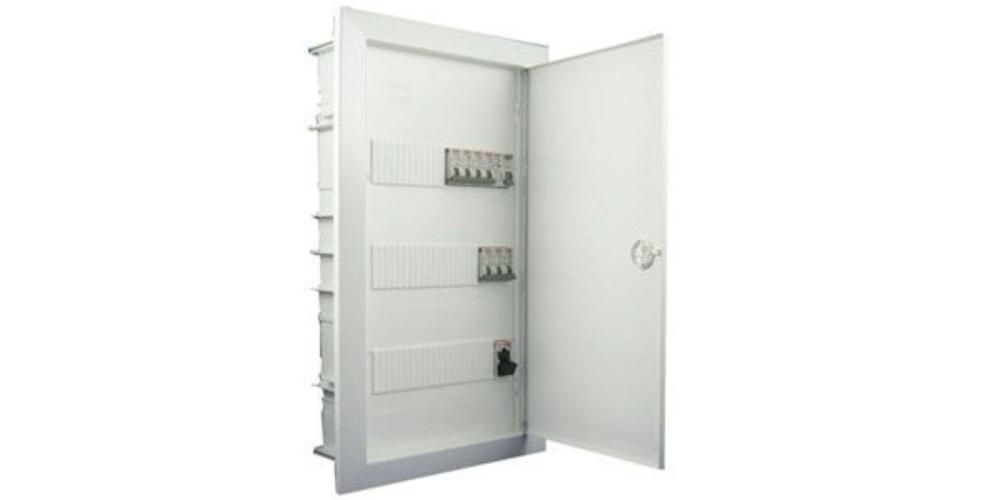
Your fuse box—technically known as a consumer unit—is the central nervous system of your home’s electrical setup. Hidden away in a cupboard or hallway corner, it plays a key role in managing and protecting your home's power supply.
Here is what makes up a standard modern consumer unit:
- Main Switch: The master control that can instantly shut down power to your entire home. Crucial in emergencies.
- Circuit Breakers (MCBs): Automatically trip when too much current flows, protecting your wiring from overheating.
- RCDs (Residual Current Devices): Detect imbalances caused by faults (like water contact) and cut power in milliseconds.
Need a visual breakdown? The Electrical Safety First website has great illustrations for identifying parts of your consumer unit.
Knowing how these components work is your first line of defence in preventing fires.
Credit: The Engineering Mindset
Common Causes of Fuse Box Fires
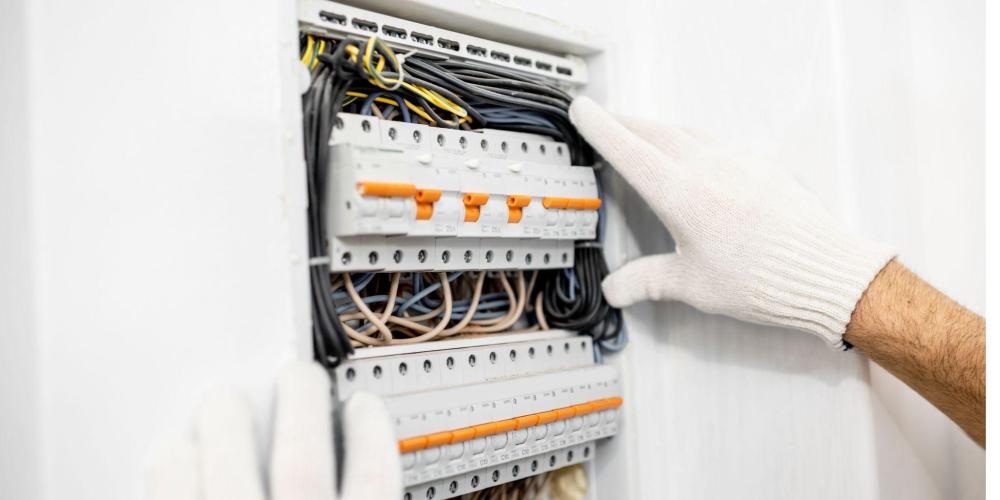
If your consumer unit is not functioning correctly, it becomes a fire hazard. These are the most common culprits:
1. Damaged or Faulty Components
Low-grade or counterfeit components can overheat and catch fire. Always use trusted suppliers like Meteor Electrical to source certified replacement parts.
Pro Tip: All fuse boxes should be inspected at least every 10 years—or sooner if you're in a commercial property.
2. Improper Installation
DIY installations or hiring unqualified electricians often leads to wiring errors that increase fire risk. Choose certified professionals, and make sure they follow the latest IET Wiring Regulations (18th Edition, Amendment 2).
3. Overloaded Circuits
Plugging too many devices into a single outlet can cause your MCBs to trip repeatedly. This constant strain wears down the system and increases fire risk.
4. Poor Maintenance
Like any appliance, your fuse box needs routine checks. Dust, moisture, and temperature shifts all contribute to degradation.
5. Environmental Factors
If your fuse box is exposed to extreme heat, cold, or dampness, its components will wear out faster. Always ensure it is placed in a dry, ventilated, and temperature-controlled location.
6. Ageing Infrastructure
Still relying on a plastic fuse box from 1990? Old units lack today’s fire-containment features. An upgrade to a modern metal-enclosure box is not just smart—it’s essential.
| Common Risk | Cause | Preventive Measure |
|---|---|---|
| Overloaded Circuits | Plugging too many devices into a single circuit | Spread usage across multiple circuits, install additional outlets if needed |
| Faulty Components | Using low-quality or damaged parts | Buy certified electrical components from trusted sources like Meteor Electrical |
| Improper Installation | DIY wiring or unlicensed electrician work | Hire a licensed professional to install or inspect your consumer unit |
| Ageing Fuse Box | Plastic enclosures and outdated wiring | Upgrade to a metal enclosure fuse box with modern RCD and MCB protection |
| Poor Maintenance | Dust, moisture, or corrosion around the unit | Clean the area regularly and schedule inspections every 5–10 years |
| Lack of RCDs | No residual current devices to detect faults | Ensure RCDs are installed and test them monthly |
| Environmental Damage | Exposure to heat, cold, or moisture | Install your fuse box in a dry, ventilated location away from extreme conditions |
| Unaware Household Members | No knowledge of safety practices or main switch location | Educate household members on circuit load limits and emergency shutoff |
Signs Your Fuse Box Might Be a Fire Hazard
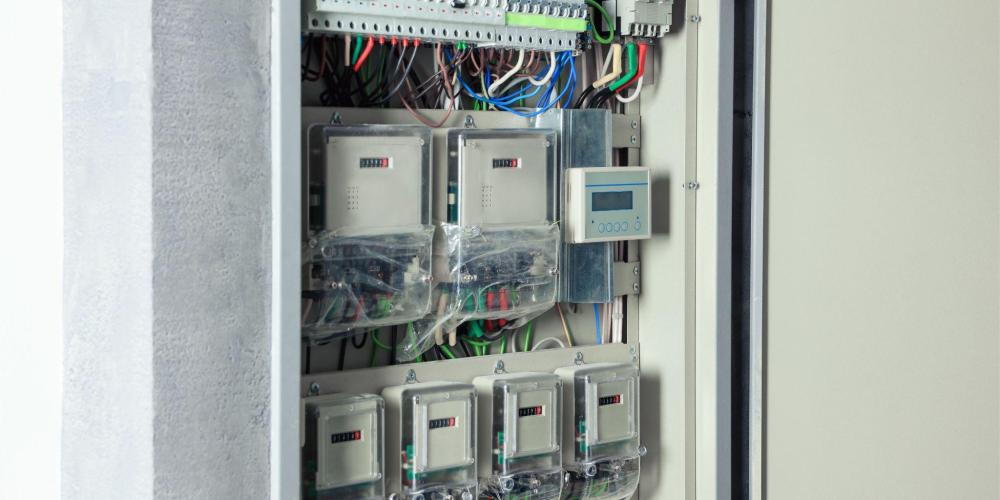
Spotting early signs of trouble can prevent a disaster. Look out for:
- Frequent Trips: Breakers constantly flipping off is not just annoying—it means something is wrong.
- Burn Marks or Burning Smells: If your unit smells like burnt plastic or shows scorch marks, shut it down and call an electrician immediately.
- Flickering or Dim Lights: Often a sign of unstable voltage or overloaded circuits.
- Hot to the Touch: Fuse boxes should never feel warm. Heat usually signals overuse or internal damage.
Visit ESFI.org for more electrical safety tips and warning signs.
10 Expert Tips to Prevent Fuse Box Fires in 2025
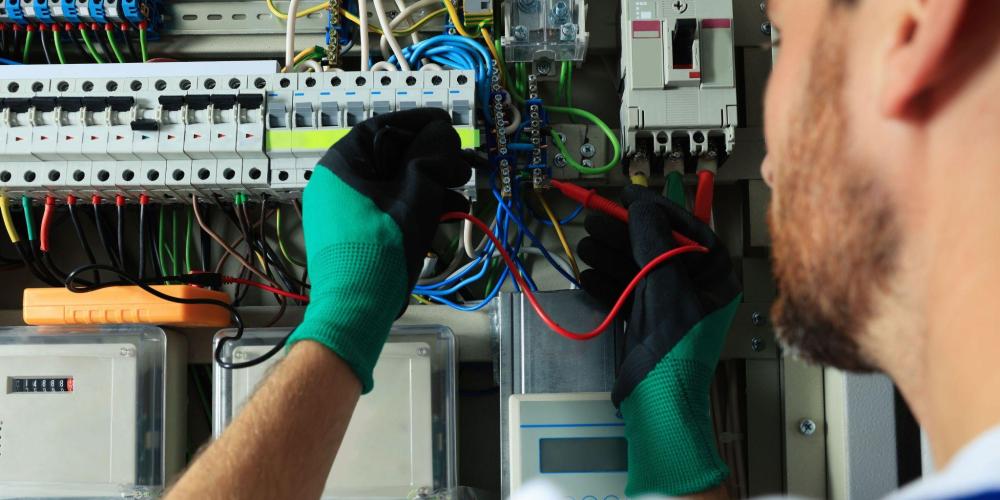
Let’s turn prevention into action. Follow these tips to keep your electrical system fire-safe and future-proof:
1. Upgrade to a Metal-Enclosure Consumer Unit
Modern metal fuse boxes are fire-resistant and built to current regulations (BS 7671). These are now a legal requirement for all new builds and rewires in the UK.
2. Install RCD Protection
If your unit lacks RCDs, you are at serious risk. These devices prevent fatal electric shocks and fires from faults.
3. Schedule Regular Inspections
Book a professional check-up every 5–10 years. Commercial buildings and rentals may require more frequent assessments.
4. Avoid Overloading Circuits
Use extension cords wisely and never plug multiple high-wattage devices into a single socket. Ask your electrician to install more circuits if needed.
5. Test RCDs Monthly
Use the "Test" button to ensure they shut off correctly. This simple step takes seconds but could prevent disaster.
6. Use Certified Components
Stick with well-known brands and certified parts that meet British safety standards. Meteor Electrical offers a wide range of compliant MCBs, RCDs, and RCBOs.
7. Keep the Area Clean
Avoid storing flammable items or clutter near the fuse box. Keep it dust-free and dry.
8. Educate the Household
Make sure everyone knows where the fuse box is and how to use the main switch in emergencies.
9. Upgrade Old Wiring
If your wiring is over 30 years old, chances are it needs replacing. Old wires may crack, overheat, or short circuit.
10. Install Smoke Alarms Nearby
Place detectors near electrical boards. It is an added layer of protection and often a legal requirement in rentals.
Credit: Rainbow Restoration
Why a Fuse Box Upgrade is Worth It in 2025
If your home is more than 20 years old, you could benefit from a complete consumer unit upgrade. New units:
- Meet modern fire safety standards
- Have integrated RCD protection
- Offer more circuit capacity for today’s high-powered appliances
- Are more reliable and easier to maintain
Meteor Electrical stocks a wide range of modern consumer units, all compliant with current UK and Ireland regulations.
Conclusion: Safety Starts at the Switch
Your fuse box is not just a panel of switches—it is your home’s safety gatekeeper. Faulty components, outdated systems, and overlooked warning signs are leading causes of home fires, but the good news is, they are also among the most preventable.
By staying informed, scheduling routine inspections, and making smart upgrades like metal enclosure units and RCD installations, you can significantly reduce your fire risk. Even something as simple as keeping the area clean or testing your RCD monthly can go a long way.
For all your fuse box upgrades, certified components, and electrical safety gear, trust Meteor Electrical—the professionals who put safety first.
FAQs
1. Why did my breaker box catch fire?
This can result from overloaded circuits, ageing components, or improper installation. Routine maintenance and upgrades help avoid these risks.
2. Are fuse boxes fire hazards?
They can be if they are outdated or poorly maintained. Metal-enclosed units with RCDs offer far better protection.
3. Can a faulty fuse cause a fire?
Yes, a fuse that fails to trip properly may lead to overheating. Always use high-quality components and perform regular checks.
4. What causes a fuse box to smoke?
Smoke indicates serious issues like short circuits or overheating. Shut off power immediately and call an electrician.
5. What is the most fire-safe consumer unit in 2025?
A modern metal-enclosure unit with integrated RCDs and MCBs is currently the safest standard available.

